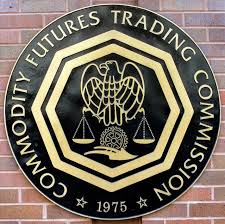
The U.S. Commodity Futures Trading Commission (CFTC) issued an announcement outlining that it simultaneously filed an order and settled charges with Morgan Stanley Smith Barney, LLC (Morgan Stanley) for improper supervision and records violations.
The Order filed by the regulator required Morgan Stanley to pay a $280,000 civil monetary penalty and to spew out the commission fees it earned from various accounts held at the company under the name of a set of companies called SureInvestment.
The latter entity claimed to be operating a hedge fund in the British Virgin Islands, which according to the Morgan Stanley’s internal compliance procedure qualified as “high risk jurisdiction." According to the CFTC, the company failed to scrutinize the matter and did not implement its own Enhanced Due Diligence and Customer Identification Program procedures.
According to the CFTC announcement, Morgan Stanley should have raised “red flags” if it had applied internal “know your customer” norms. Audits of SureInvestment were filled with typos and various suspicious irregularities, allowing for the operation of a UK. Ponzi scheme.
The owner of SureInvestments, Benjamin Wilson, used the accounts to extend an ongoing $35 million Ponzi Scheme operation based in the United Kingdom. Mr. Wilson has already been convicted to seven years of imprisonment after pleading guilty to criminal charges brought forth by the U.K. Financial Conduct Authority (FCA).
CFTC’s Enforcement Director, Aitan Goelman, commented in the announcement, “CFTC regulated firms, like Morgan Stanley, must adhere to rigorous internal controls, such as ‘know its customers’ controls, to protect customers and the markets from fraud and corruption.”
In addition, according to the order filed by the U.S. regulator, Morgan Stanley failed in the enforcement process of its own trading limits related to the accounts of SureInvestment. As a result, initial Margin Requirements far exceeded the applicable credit trading limit. The company failed to respond timely and accurately to the CFTC's request to produce the SureInvestments’ records and failed to maintain adequate records regarding the credit trading limit of SureInvestment accounts.


















